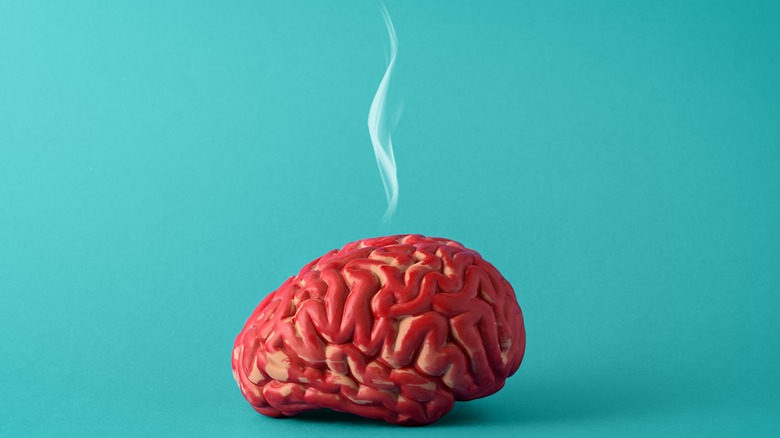How Medical Marijuana Really Affects Your Brain
Medical marijuana has been an increasingly popular way of treating and easing a number of medical ailments. According to research published in the journal Medical Cannabis and Cannabinoids, as of 2020, there were approximately 3.6 million medical cannabis patients in the United State. According to WebMD, 37 states have legalized its use for medical purposes thus far.
The process to obtain medical marijuana involves first having a condition that allows for medical marijuana treatment, per WebMD. From there, patients need to get a prescription from their doctor and possibly a state-issued card that will allow them to purchase it. Doctors prescribe medical marijuana to help treat a number of maladies including chronic pain, seizures, nausea, Crohn's disease, and conditions that attack the immune system such as HIV and multiple sclerosis (via WebMD).
With more states legalizing marijuana and doctors prescribing it for patients, an important question to consider is: how does long-term marijuana use actually affect the brain?
Your brain on marijuana
Because cannabis is considered a Schedule 1 drug by the U.S. Drug Enforcement Administration (DEA), the ability to study it requires special permission and licenses (via WebMD). Because of these restrictions, there is not a wide body of research to draw from. We do know, however, that cannabis use may significantly impact your brain function (via MindBodyGreen). While marijuana may help ease anxiety for some, a 2019 study published in The Lancet linked daily marijuana use with a higher chance of potentially developing a psychotic disorder. However, psychiatrist and medical marijuana prescriber Dr. Rebecca Siegel points out to MindBodyGreen that the research is limited and doesn't necessarily mean that marijuana always causes psychotic disorders.
While the jury is still out regarding the relationship between marijuana and psychosis, we do know that cannabis impacts different areas of your cognitive functioning. Some users report that cannabis helps with concentration, but Dr. Siegel explains that long-term use may potentially result in less blood flow to the areas of your brain that affect learning, coordination, memory, and your ability to make decisions (via MindBodyGreen). Chronic use may also cause you to become dependent on it, per MindBodyGreen. Because cannabis affects everyone differently, talk with your doctor to decide if medical marijuana is right for you.


